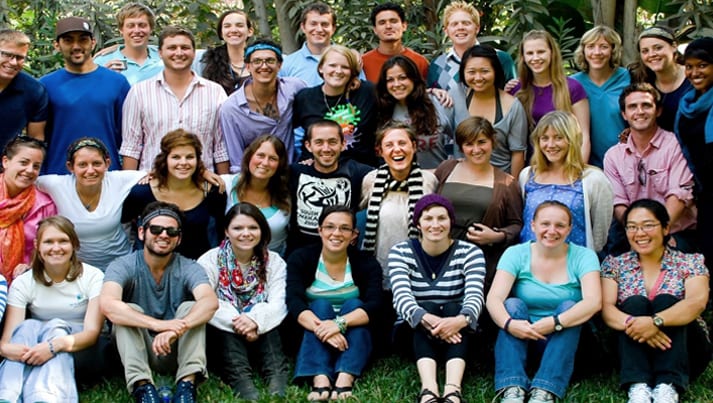Mind Boggling

Peace Corps volunteers risk their lives to serve, but Congress refuses to give them the same health coverage as other federal employees.
When Peace Corps Volunteer Christine Carcano was raped during her service in Peru, she confronted a mountain of challenges to overcome the experience: trauma, pelvic inflammatory disease from a sexually transmitted infection she contracted, and fear of being blamed and not believed. She also received the devastating news that she was pregnant due to the rape.
Christine bravely underwent counseling and treatment, but what she did not expect was that the Peace Corps would not cover the cost of her abortion—more than a month’s salary. “It was sort of another blow. I felt disappointment and frustration.” she remembers. “I had to shelve a lot of that emotion in the moment. It was going to take too much out of me to deal with it.”
This week, a delegation of advocates heads to Capitol Hill to address this glaring infringement on the reproductive rights of women serving in the Peace Corps. Unlike women in the foreign or armed services—or any woman with federal health care coverage, including inmates, detainees, Peace Corps employees, and those receiving Medicaid and Medicare assistance—an arcane appropriations provision renders Peace Corps Volunteers ineligible for coverage of abortion services due to rape, incest, or life endangerment. While Peace Corps service is safe overall, it is not risk free, and over the last decade, more than a thousand Peace Corps Volunteers have reported sexual assaults, making such coverage vital for these women.
Mary Kate Shannon, also a Peace Corps Volunteer in Peru, was raped twice during her service. The second time, she experienced a pregnancy scare.
“When I heard about the abortion coverage ban I was really confused. I was petrified at the idea of being pregnant after a rape. I didn’t know how to do that or come back from that. I didn’t have a way to pay for it. I didn’t know how to talk to my family about it to get their help,” she reflects.
While Mary Kate received valuable counseling and support from the Peace Corps, she was shocked at the of lack options available to her if she was indeed pregnant. “Being part of the Peace Corps organization had been very important to me and the fact that I was treated differently because I was a victim of sexual assault rather than having a broken arm—I couldn’t get my mind around it. I kept telling them, ‘I was raped. I was raped.’”
The Peace Corps Equity Act, introduced last April by now-deceased Senator Frank Lautenburg, and now championed by Senator Jeanne Shaheen, passed through the Senate Appropriations Committee in July, and seeks to remedy this unacceptable lapse. The Act would make the same abortion coverage offered to federal employees available to Peace Corps Volunteers.
Visiting the Hill this week, Center for Reproductive Rights staff, staff from the National Peace Corps Association, Returned Peace Corps Volunteers Christine Carcano and Mary Kate Shannon, and a professor from the University of Ottawa who did a study on access to reproductive health services for women in the Peace Corps will attempt to garner support from members for this critical measure. Additionally, the delegation will advocate for approval of President Obama’s proposal in his FY15 budget to include this coverage for these essential abortion services for Peace Corps Volunteers.
“There’s a reason that most people are shocked to hear that Peace Corps Volunteers are in essence singled out by Congress to not receive coverage of even life-saving abortions, or terminations in the case of rape or incest – and that’s because the policy is simply mind boggling.” says Aram Schvey, policy counsel for foreign relations and human rights at the Center and one of the organizers of this week’s advocacy day, “The suggestion that our country has no responsibility to provide, for example, life-saving reproductive health care to volunteers who bravely serve around the world is callous at best and cruel at worst.”
In Mary Kate’s case, she was spared having to take on the financial burden of paying for her own abortion. She found out she was not pregnant after returning home, but even this relief did not ease the distress and alienation she had felt when first faced with the possible reality of her situation.
Discussing her involvement in the advocacy day at the Hill, she remarks, “I always felt my service would have been really different without that experience. When I thought I might need an abortion but couldn’t afford one, I was severely depressed and unstable. I thought my life was over. I don’t want one single other Peace Corps member to ever have to feel that way.”
————————————————
